Distinguished Byzantinist and Russianist Christopher John Godfrey Turner (B.A., M.A., Ph. D. Cantab., M.A., M. Phil. Oxon., F.R.S.C.) died rapidly and peacefully on Tuesday July 30th 2013 of complications of his Parkinson's Disease first diagnosed eleven years ago. He was spared both complete blindness from his advancing glaucoma, and any degree of senile dementia from his illness.
Born to Alan Bramwell Turner, a mathematician, and Alice Mabel Gladys Turner, a modern linguist, in Walsall, Staffs. on 23rd April 1935 as their second child, he was predeceased by both his parents and by his sister Cynthia Mary. He grew up in the Black Country, attending for his secondary schooling the Wolverhampton Grammar School (1944-54). In that highly competitive environment he invariably led his class in all subjects, earning from one of his masters the accolade O si sic omnes. He was known as “Titch” because of his small stature: indeed no boy ever rivalled him as the shortest in his year. He was a keen footballer and prizewinning runner; he stayed on at W.G.S. after Oxbridge scholarship entrance for an extra term in order to attempt a new speed record. His youthful blend of extraordinary mental energy, physical compactness and personal maturity made him the model for Chris Godfrey, hero of Blast Off at Woomera, a young adult science fiction novel, the first (1957) in Hugh Walters’ Chris Godfrey of U.N.E.X.A. series. The local accent of his birthplace still occasionally emerged even decades later.
After his 1953 A-levels in Latin, Greek and Ancient History he won a State Scholarship with open awards for Classics into both Oxford and Cambridge. In common with other promising linguists he was drafted for the period of his National Service into the Cold War Joint Services Language Course, graduating in 1956 as an officer and a fully trained interpreter in Russian. He remained a reservist for a number of years. His family church background was in Methodism. During his National Service he was converted to Jesus Christ through a relay from a Billy Graham mission.
He went up to Sidney Sussex College, Cambridge in 1956, where he chose to read, not Classics, but the Modern and Medieval Languages Tripos in Russian and Modern Greek. He was active in the Methodist Society and the Cambridge Inter-Collegiate Christian Union. He played soccer and ran for the university, gaining a half-blue. He was the most distinguished student of his year in the Tripos. In 1959 he started work on a late Byzantine theological subject for his Cambridge Ph. D.: his topic was George-Gennadius Scholarius: Some Aspects of his Life, Works and Thought. This enquiry took him and his young wife, Priscilla née Watson (Girton 1957) to Munich in 1962 for two years’ work as an A. von Humboldt-Fellow under Hans-Georg Beck. His original work is still quoted all over the world. The couple then moved to Oxford for two years. She held the Hall-Houghton Studentship for Septuagint Studies, which enabled him, there being no bread-and-butter in Byzantine Studies, to return to Slavonic Studies via an M Phil. course and dissertation in General and Comparative Literature. The Greek and Roman Classics never ceased to enthrall him, and he was an excellent Hellenist in particular to the end of his days. He was also a finished theologian and fine occasional preacher.
Elected in 1966 into the Fereday Fellowship at St. John’s College, Oxford, and concurrently offered a promising career in the British Civil Service, he with his wife decided instead to emigrate to Canada for employment in a university teaching post. He taught Russian Language and Literature first at McMaster University (1966-71) where their first child was born, and then at U.B.C. (1971-2000) His literary-critical output, in spite of heavy teaching loads in both institutions, was both large and distinguished, including Pechorin: An Essay on Lermontov’s A Hero of our Time (1978); Time and Temporal Structure in Chekhov (1984); and the definitive A Karenina Companion (1993). In 1970 he held a British Council Exchange Studentship at Moscow University. In 1976-77 he was a Canada Council Leave Fellow and an Associate of Clare Hall, Cambridge.
His devotion to his home soccer club, Walsall, never flagged however far away he lived from that club and its play. He continued for decades to run on the smooth concrete sidewalks of Second Shaughnessy in Vancouver. He served in every possible lay office in parishes within the Anglican Diocese of New Westminster, supporting his wife, with whom he shared many joint endeavours, in building literature programmes and lending libraries in three local churches. He taught quite young children in Sunday School. Lively, indeed animated, discussion of matters biblical and theological was the rule at their table. His blend of high academic standards and deep spirituality was warmly appreciated by generations of students. Students in any kind of need or trouble found in him a listening ear and sympathetic heart.
Modest to a fault, he was nevertheless inordinately proud of the academic and sporting achievements of Anna Ruth (b. 1967), Dorothea (b. 1971) and of his wife’s belated D. Phil. (1996). He had been glad of all sacrifices, and they were many, made for his family. He loved home life, and marriage was central to him. He loved his godson William (Bill) Lumley, his nephew Benedict (Ben) Watson, his son-in-law William (Bill) Morland and his grandchildren Timothy John and Elizabeth Anna. He still laughed at other people’s jokes even when his speech became too impaired for him to make any more of his own. He loved Jesus Christ above all, and in his final weeks was still to be found on his knees every morning with his Bible open before him. Intellectually brilliant, full of practical commonsense and personally holy, he can never be replaced. He is immortalised as Simon Rivers in a recent novel by Diana Maryon.
The funeral service will be held at St. John’s Shaughnessy Anglican Church, Granville and Nanton, Vancouver, BC, Canada on Saturday, August 3rd, 2013 at 12:00 noon. Please no flowers: donations may be made instead in his memory to the Parkinson’s Society of Canada, the Wolverhampton Grammar School, Sidney Sussex College, Cambridge, St. John’s College, Oxford, or to the Christian or humanitarian charity of your choice.
Jesus, Thy blood and righteousness
My beauty are, my glorious dress;
’Midst flaming worlds, in these arrayed,
With joy shall I lift up my head.


1935
Christopher
2013
Christopher Turner
April 23, 1935 — July 30, 2013
To order memorial trees or send flowers to the family in memory of Christopher Turner, please visit our flower store.
Guestbook
Visits: 2
This site is protected by reCAPTCHA and the
Google Privacy Policy and Terms of Service apply.
Service map data © OpenStreetMap contributors



